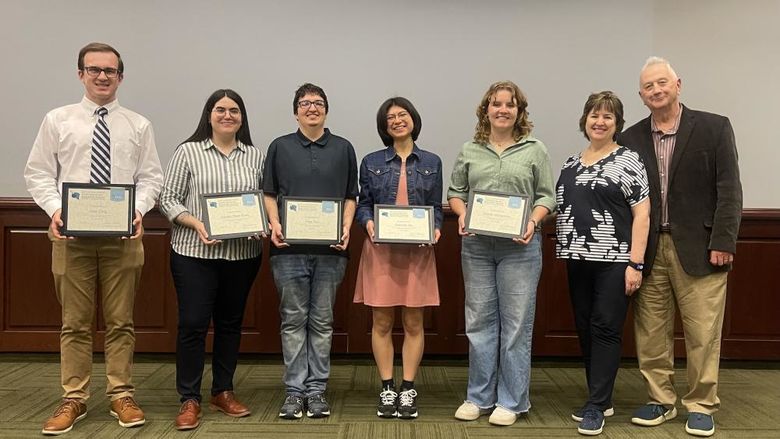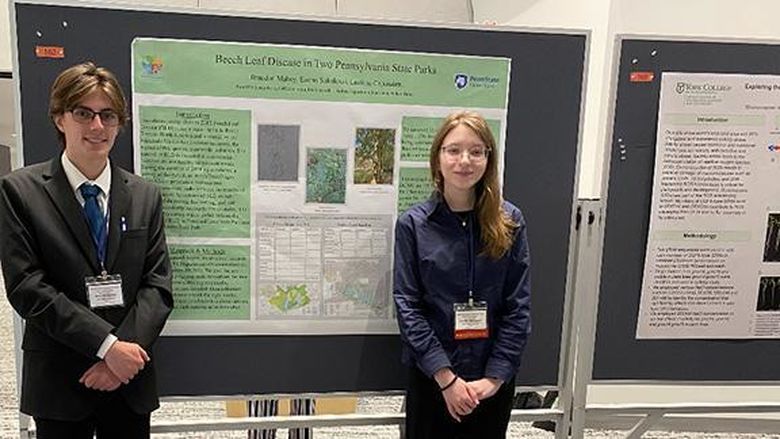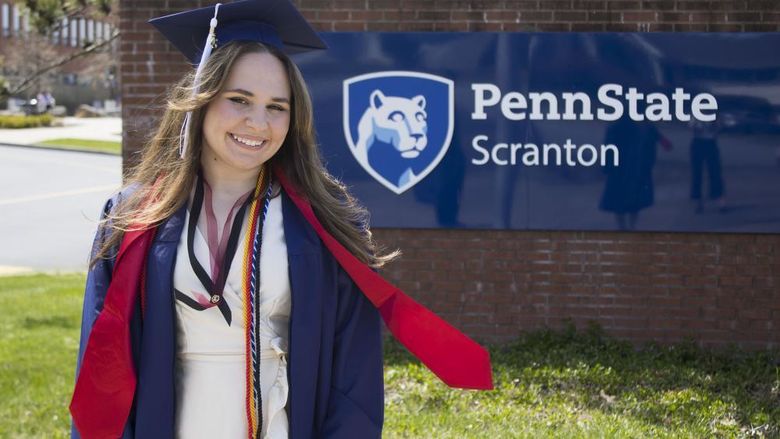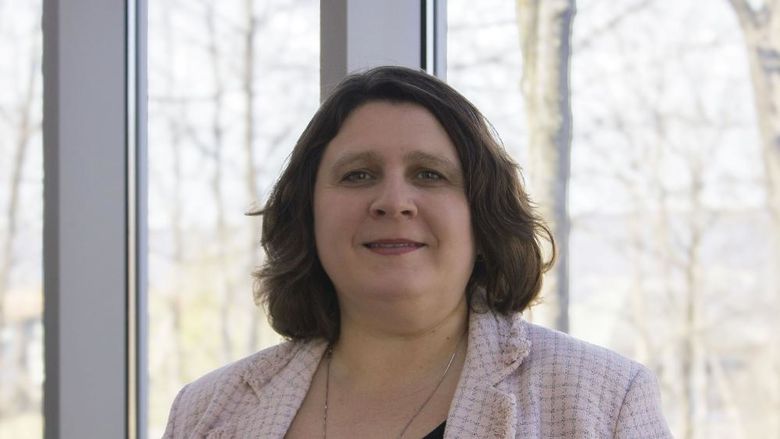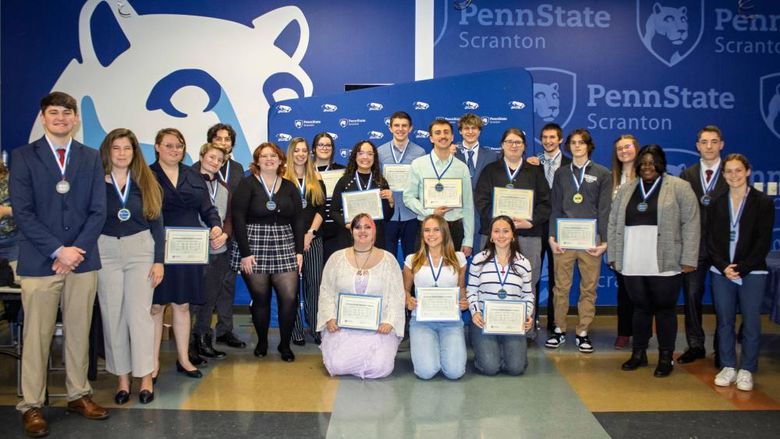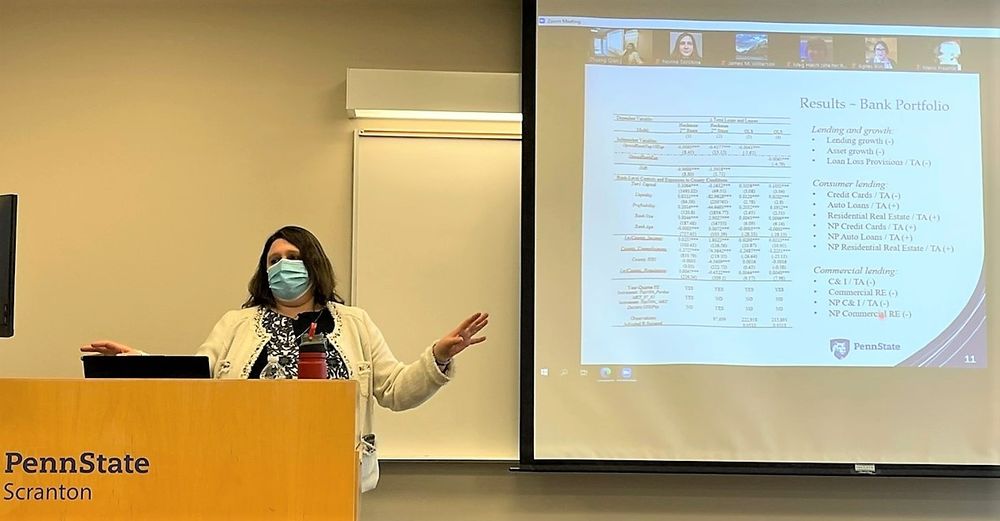
Assistant Professor of Finance Nonna Sorokina, a scholar in the finance and quantitative fields, presented her research, coauthored with Wenli Li, senior economic adviser and economist at the Federal Reserve Bank of Philadelphia, and Raluca Roman, senior financial economist at the Federal Reserve Bank of Philadelphia, about the opioid epidemic during the campus' first Brown Bag Lunch Seminar of the spring semester at Penn State Scranton.
DUNMORE, Pa. – While the COVID-19 pandemic has been dominating local and national news for the past two years, there is another epidemic that began in the 1990s, and is still causing death and destruction on a major scale in the lives of those who become afflicted — the opioid epidemic.
When talking about opioid addiction, the consequences that first come to mind are dependency, addiction, overdoses and a greatly diminished quality of life for both the afflicted and their friends and family. But there is another aspect that is often overlooked — and that is the financial one, said Penn State Scranton Assistant Professor of Finance Nonna Sorokina in her recent presentation, “Assessing the Consumer and Bank Credit Consequences of the Opioid Epidemic: Quo Vadis?”
Sorokina’s presentation on her research paper was the first in this semester’s Brown Bag Lunch Seminar series, a unique forum started several years ago at the campus for faculty, students and alumni to share their research, quality improvement projects and creative works with the campus community. This year is the first time since the COVID-19 pandemic began in spring, 2019 that the series was able to be held on campus and in-person.
Sorokina partnered with coauthors Wenli Li, senior economic advisor and economist at the Federal Reserve Bank of Philadelphia, and Raluca Roman, senior financial economist at the Federal Reserve Bank of Philadelphia. Their research assesses the consumer and bank credit consequences of the opioid epidemic.
She noted that the opioid epidemic, which is currently widespread throughout the country, began in the late 1990s and is still one of the largest ongoing consumer crises. By 2012, prescription abuse peaked, investigations intensified and restrictions for opioid prescriptions were introduced. It began as a man-made disaster that was fueled by irresponsible practices of pharmaceutical companies and reckless prescribing by medical professionals.
The research paper raises awareness of the risks and implications of the opioid epidemic for both consumers and banks, which is important for promoting consumer market resilience and financial system stability.
According to Sorokina, some banks have responded to this crisis by charging higher interest rates in affected areas and providing consumers there with less credit. Those with high credit utilization, deep delinquencies and low education are punished the most. According to Sorokina, the mitigating factors are homeownership, marital status and no children. Delinquencies on consumer loans were greater in the affected areas despite banks’ effort to curb the impact.
Sorokina also notes within her research that there are currently two million people suffering with an opioid dependency, and over 500,000 have died from opioid overdoses between the years 1999-2019. She and her colleagues also found that although opioid prescribing rates have decreased, it has not affected the number of deaths resulting from the opioid epidemic.
Also, this current study does not include the COVID-19 pandemic timeframe and later periods, but Sorokina believes it would be interesting to see the impact because mental health illness and the opioid epidemic both spiked during the COVID-19 pandemic.
“An opportunity to present in a brown bag seminar is a great way to obtain early feedback on working papers, connect to colleagues, learn about their research agenda, discuss caveats of the methodology and discover new datasets,” Sorokina said, adding that she appreciated the opportunity to re-open the Brown Bag Series at Penn State Scranton, is thankful for the feedback from colleagues, and is looking forward to presenting future seminar sessions.
Mike Evans, assistant dean for undergraduate nursing education at Penn State’s Commonwealth Campuses and a teaching professor in nursing, was instrumental in the launch of the seminar series.
“This started as a collaborative effort between me and Dr. Sellers and Dr. Machluf, former assistant professors of psychology on campus, as we wanted a forum where faculty, students, and alumni could share their research, quality improvement projects and creative works in a non-intimidating format before presenting at a larger conference. This idea was supported by the campus administration and it became quite successful for several years before we all moved onto our other positions,” Evans explained.
“I am thrilled to see the seminar series back at Penn State Scranton," added Evans. "It provides faculty and others with a platform to disseminate their work and also provides students with the opportunity to network with faculty about their research efforts.”
Assistant Professor of Project and Supply Chain Management Zhuang Qian is now directing the Brown Bag Lunch Seminar series and has been sending invitations to all faculty members to find those interested in showcasing their recent research projects/publications to the campus community.
“The objective is to maximize diversification of topics because faculty members from different disciplines are conducting totally different scholarly activities using different methodologies,” Qian said. “I wish to build this as a platform [in which] everyone can take away what they need and meanwhile, contribute to this platform.
“From the perspective of faculty, it is a great opportunity to showcase their research activities and exchange insights and comments from their colleagues and students. In addition, it is a great way to network with other faculty members on campus and build co-authoring bonds. From the perspective of students, they can learn new knowledge as well as understand what their instructors do beyond classrooms. Attending these seminars may also spark students’ interest in research and ultimately choose an academic career,” Qian said.

